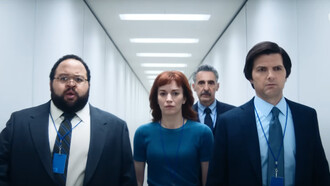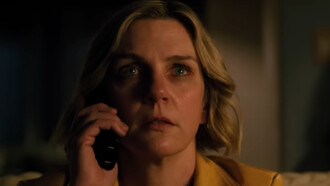The DC Extended Universe (DCEU) represents Warner Bros.'s ambitious attempt to create a cinematic universe that rivals Marvel's, featuring iconic characters like Batman, Superman, Wonder Woman, and others. Despite high hopes and substantial investment, the DCEU has struggled to achieve the critical acclaim and box office success of its Marvel counterpart. This article explores the reasons behind the DCEU's struggles and failures, examining key factors such as inconsistent tone, lack of a cohesive vision, and competition.
Inconsistent tone and direction
One of the primary reasons for the DCEU's struggles is its inconsistent tone and direction. Unlike Marvel's Cinematic Universe (MCU), which established a clear and consistent tone early on, the DCEU has swung dramatically between dark, gritty narratives and light-hearted, comedic ones. This inconsistency can be traced back to the contrasting styles of its directors and the lack of a unified creative vision.
For instance, Zack Snyder's "Man of Steel" (2013) and "Batman v. Superman: Dawn of Justice" (2016) were criticized for their overly sombre and grim tone, which many felt was not in keeping with the characters' comic book origins. Conversely, "Suicide Squad" (2016), despite its attempt at a more lighthearted approach, suffered from poor execution and a disjointed plot, leading to negative reviews.
Lack of a cohesive vision
Marvel Studios' success is often attributed to Kevin Feige's role as the president of the studio, under whose guidance the MCU has grown with a clear, cohesive vision. The DCEU, on the other hand, has lacked a similar figure with the authority and vision to steer its universe consistently. This absence has resulted in a disjointed movie slate, with films often feeling disconnected from one another, lacking the interconnectivity that fans have come to expect from cinematic universes.
Warner Bros. has made several attempts to correct this course with changes in leadership and strategy, but these efforts have often felt reactive rather than proactive. The lack of a long-term plan has been evident in the shifting release dates, abrupt changes in direction, and the cancellation of previously announced projects.
Box office performance and critical reception
While some DCEU films have achieved financial success, their performance at the box office has been inconsistent, and critically, the universe has struggled. "Batman v Superman: Dawn of Justice" and "Justice League" (2017) are often cited as major disappointments, both critically and financially, failing to meet expectations despite their significant budgets and high-profile characters.
In contrast, "Wonder Woman" (2017) and "Aquaman" (2018) were both critical and commercial successes, demonstrating that the DCEU could produce well-received films. However, these successes have been exceptions rather than the rule, and the DCEU has not managed to sustain this success across its slate of films.
Competition from the Marvel cinematic universe
The DCEU has also suffered from the inevitable comparisons to the MCU, which has dominated the superhero genre since its inception in 2008. Marvel's consistent critical and commercial success has set a high bar, making any misstep by the DCEU more pronounced. The MCU's well-established universe, beloved characters, and interwoven storytelling have captivated audiences worldwide, making it challenging for the DCEU to carve out its niche.
The DCEU's attempts to rapidly establish its universe and catch up with Marvel have often felt rushed, leading to underdeveloped characters and narratives. This rush has contributed to the perception that the DCEU is more concerned with quantity over quality, further hampering its ability to compete effectively with the MCU.
Financial performance and critical reception
Financially, the DCEU has seen a rollercoaster of outcomes. While films like "Aquaman" (2018) reached over $1.1 billion globally, making it the highest-grossing film in the DCEU, others have underperformed. "Justice League" (2017), despite being one of the most anticipated films, grossed about $657 million worldwide against an estimated break-even point of $750 million, considering its hefty production and marketing costs.
Critical reception has also varied widely. According to Rotten Tomatoes, "Wonder Woman" (2017) received a high approval rating of 93%, highlighting it as a critical success. In contrast, "Suicide Squad" (2016) and "Batman v. Superman: Dawn of Justice" (2016) faced harsh criticism, holding approval ratings of 26% and 28%, respectively. These ratings reflect the inconsistency in the DCEU's ability to deliver quality content that resonates with both audiences and critics.
Leadership and vision changes
The DCEU's journey has been marked by significant shifts in leadership and creative direction. Initially led by Zack Snyder, the vision for the universe took on a darker, more serious tone. Following the mixed reception to "Batman v Superman" and Snyder's departure during "Justice League" due to personal reasons, Joss Whedon took over, leading to a noticeable shift in tone in the latter film that did not sit well with fans or critics.
Warner Bros. has made several attempts to recalibrate the DCEU, including appointing Walter Hamada as president of DC Films in 2018. However, the lack of a singular, consistent vision akin to Kevin Feige's role in the MCU has made it difficult to achieve a cohesive narrative thread across films, contributing to the perception of a fragmented universe.
Fan reactions and the #ReleaseTheSnyderCut movement
Fan reactions to the DCEU have been mixed, with passionate debates about the direction of the universe. A significant point of contention was the handling of "Justice League," leading to the #ReleaseTheSnyderCut movement. Fans campaigned for the release of Zack Snyder's original vision for the film, arguing that it would be superior to the theatrical release. In 2021, Warner Bros. acquiesced, releasing "Zack Snyder's Justice League" on HBO Max, highlighting the impact of fan engagement but also underscoring the divisive nature of the DCEU's offerings.
Looking to the future
The DCEU's future remains in flux, with Warner Bros. continuing to adjust its approach. Recent successes like "Shazam!" (2019) and "Joker" (2019), though the latter is not part of the DCEU, indicate a potential path forward focusing on character-driven stories rather than an interconnected universe. The announcement of films like "The Batman" (2022), existing outside the DCEU continuity, suggests a shift towards standalone narratives that may allow for more creative freedom and potentially more consistent critical and commercial success.
Warner Bros. has also shown interest in exploring multiverse concepts, potentially allowing for a more diverse range of stories and interpretations of beloved characters. This strategy could enable the DCEU to differentiate itself from the MCU, offering audiences alternative superhero narratives.
Conclusion
The DCEU's struggle to match the success of its Marvel counterpart is a multifaceted issue stemming from inconsistent tone, lack of cohesive vision, leadership changes, and mixed critical and financial performances. However, the recent pivot towards standalone stories and the exploration of a multiverse concept may offer a new direction for the universe. As Warner Bros. continues to refine its approach, the potential for the DCEU to carve out its unique space in the superhero genre remains, backed by a rich catalog of characters and stories waiting to be explored. The future of the DCEU may hinge on its ability to adapt, listen to its audience, and embrace the unique qualities of its characters, offering fans a universe that celebrates the depth and diversity of DC Comics.















